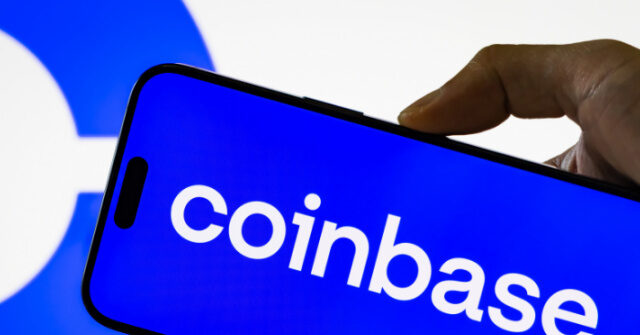JPMorganChase (JPMC) and Coinbase announced a partnership to allow customers to more easily purchase and custody cryptocurrencies such as Bitcoin while the nation’s largest bank has been accused of “debanking.”
JP MorganChase’s partnership with Coinbase, a digital currency exchange in 2026 will allow Chase banking customers to seamlessly link their bank accounts to Coinbase wallets. Customers will also be able to transfer their Chase Ultimate Rewards to their Coinbase account at a one-to-one redemption ratio, and this fall, Chase credit cards can fund their Coinbase accounts.
Melissa Feldsher, head of payments and lending innovation for JP MorganChase, said in a statement, “This partnership marks a significant step forward in empowering our customers to take control of their financial futures.
She added, “By joining forces with Coinbase, we are enhancing the security and privacy of our customers’ data, allowing them to use their money and rewards in new and exciting ways. With Ultimate Rewards, the most flexible loyalty program in the industry, our customers can now seamlessly and securely convert their points into cryptocurrencies.”
“We’re excited to partner with JPMorganChase to onboard the next generation of consumers into crypto. Together, we are expanding choice and lowering barriers to entry for consumers to participate in the future of financial services onchain,” Max Branzburg, head of consumer & business products at Coinbase, stated.
The announcement follows a JPMC announcement that it would charge fintech companies for each time a customer’s information was accessed.
Fintech and cryptocurrency companies have slammed the decision, likening it to Operation Chokepoint, a government-led to push for “debanking” of these fintech companies.
Tyler Winklevoss, a founder of the digital currency exchange Gemini, accused JPMC of pausing the onboarding of his exchange because of his criticism of the bank:
JPMC’s partnership would establish a direct connection with Coinbase and cut out data aggregators such as Plaid, MX, and Akoya, which work to link bank accounts to third-party financial platforms such as Coinbase, Robinhood, and Gemini.
JPMC believes that third-party data aggregators abuse their secure application programming interface (API) and that roughly 90 percent of customer data is accessed with their knowledge. One CNBC report, citing an internal JPMorgan memo, said that of the 1.89 billion data request from data aggregators, only 13 percent were set by a customer.
On the obverse side, data aggregators such as Plaid believe that these data requests, which are approved by banks, to protect users against fraud. John Pitts, the global head of policy for Plaid, has said that technology could be used to eliminate redundant API calls.
Emilie Choi, president and chief operating officer at Coinbase, said it will retain its partnerships with Plaid to ensure that Americans can easily connect their banks to Coinbase:
Sean Moran is a policy reporter for Breitbart News. Follow him on X @SeanMoran3
Read the full article here


